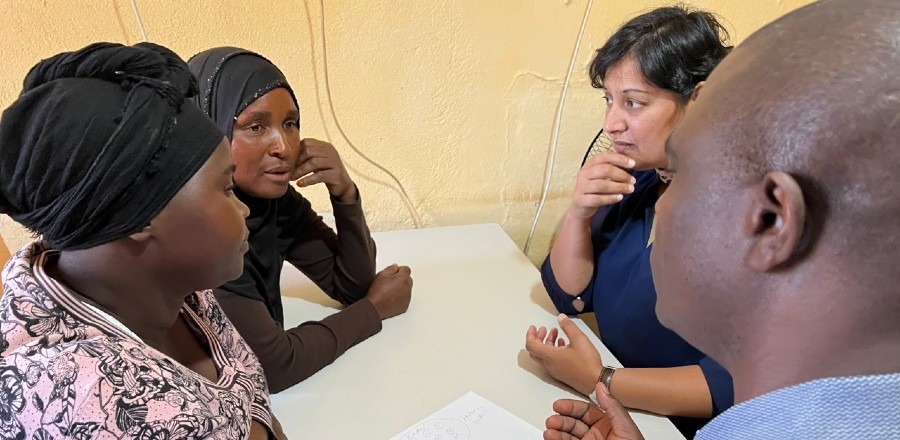Creating safe spaces for women and men in Malawi

Academics from Glasgow Caledonian University are in Malawi to help set up safe spaces for women and men who are suffering the psychological impacts of climate-related disasters.
Previous research carried out by the University's Mary Robinson Centre for Climate Justice investigated the impacts of climate change on mental health, which was highly commended for its impact by UK Research and Innovation. The project put the spotlight on the lived experiences of rural women, mainly in Malawi, and delivered evidence directly to policy-makers to inform future decisions at a national level that would help address a growing mental-health crisis.
Professor Tahseen Jafry, director of the University's Mary Robinson Centre for Climate Justice, said: “Creating these safe spaces in camps across Malawi, often for those displaced by extreme weather, represents a much-needed critical intervention for their protection and security, especially, in relation to their mental-health challenges and onward support.
“The aim is to provide a support system for these vulnerable women, and men too, facing the harsh realities of displacement, to heal from its associated traumatising experiences and renew their hope and belief in a brighter future. With specific reference to climate justice, our aim is to work towards achieving their human right to a decent quality of life.”
The Centre will work with Life Concern Malawi to scope out suitable locations for the safe-spaces and to ensure adequate community-led and professional support is on hand to facilitate them. Data will then be collected as to their impact.
Professor Jafry and Glasgow Caledonian’s Dr Malawi Ngwira are currently based in an area that was hit by Cyclone Freddy last month.
The devastating toll of the resultant floods in Malawi caused the displacement of more than 564,000 people in 577 sites. As of March 25, 511 deaths have been recorded, about 1724 injured and 533 people are still missing.
As a result, 505 camps have been established to house the displaced population—comprising of schools, churches, community-based childcare centres, Government community halls, evacuation centres and other make-shift community venues. The scale of devastation of the cyclone is undermining rescue efforts and hampering people’s access to food, water and power, exacerbating health challenges significantly.
Professor Jafry said: “We are introducing safe spaces as a unique intervention by way of coping with climate disasters. It has not been done before and there will be lots of sharing of lessons learned with the project team. We will be working closely with the Blantyre District Planning and Development Office, the Ministry of Health and Ministry of Gender among others, to work towards scaling up the intervention in a manner that is sustainable.”
The project team will also be in discussions with UN Women, which plays a vital role regarding new partnerships and collaborations on reconstruction and recovery from climate-inducted disasters.
